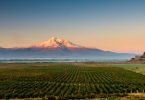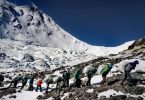Following a recent article here on the likely impact of the Isimba hydroelectric plant, should, as it is much feared, the maximum height dam option be pursued by the developers and financiers, a large number of comments and information hit my mailboxes, warning of the irreversible impact that project might have on the upper Nile valley.
Those concerned and sharing their insights were, in particular, citing the example of Bujagali, where several years after commissioning the plant the downside of “development” is becoming all too apparent. While it is clear that Bujagali, when it came on line, was a lifesaver for Uganda as far as available electricity is concerned – prior to the commissioning were Ugandans subjected to a crippling load-shedding regimes as a result of failed energy policies – it did NOT lower the tariffs as was promised and with the information now at hand one must ask, what mitigate measures, if any, have actually taken hold to protect the up-steam ecosystem.
First to be affected were the adventure companies that offered rafting and kayaking along an exciting white water stretch of the river just below the Owen Falls dam. They were all based around the Bujagali Falls area and had to move their operation downstream as considerable expense, when the mighty roar of the river, rushing over the rapids and falls, was silenced by rising waters as the dam downstream was closed and the reservoir filled up.
What was once a rushing and gushing river and Uganda’s most visited site, with visitors from near and far flocking to Bujagali to see the white water close up and personal, watching the rafts fly over the rapids and more often than not flipping in the air, with riverbanks teeming with bird life, today the mini lake has entirely altered the fabric of the area.
Overfishing has depleted this stretch of river of fish, with locals led to believe, or misled to believe, that there could be a new livelihood in fishing, leaving the fishing stations put up by the operators of the hydro-electric plant slowly fall into disrepair as the quantity of fish landed had declined to levels no longer viable for commercial purposes. The lack of fish has also led to an exodus of certain bird species, notably with few fish eagle-breeding pairs left. In the past their calls echoed up and down the river, audible even over the roar of the water from the falls and rapids and today those calls have all but gone, leaving the silence at times quite deafening for those who were used to the sound from the river.
Also by and large disappeared have the large number of fruit bats which were using trees on the many little islands in the river to rest, but when the islands got submerged and the trees died, so did the habitat of the fruit bats, incidentally a protected species in Uganda, not that it helped them in this case.
Increased cultivation along the riverbanks has also impacted on the ecosystem and displaced wildlife and birdlife, leaving the area’s biodiversity poorer and the people living three not much better off either. The steady flow of income and of CSR programs which benefitted local schools and other facilities, has dried up at this part of the river, as the tourists are now arriving further downstream for their rafting, leaving their past stomping grounds less busy, with less employment and less income for the locals. Hopes of alternative attractions, including the formation of a leisure hub, have not materialized at this time and many Kampaleans asked cited the ugly sight of transmission lines at the other side of the river as a reason not to be too keen to support schemes floated to put up weekend estates, bringing to the forefront one of the biggest failures of the regulators and of government, to push the transmission lines back from the river front in order to allow for such developments.
Additionally, and more worrying, do the waters of the river now move only very slowly, and the mini lake has become a breeding ground for bilharzia, something which was rarely found along the fast moving river before the dam went up. This prevented the emergence of alternative water sports as experts had suggested and locals hoped for, as the target group for sailing, boating and water skiing, mainly affluent Ugandans and of course the expatriate community, have been warned of the emergence of waterborne diseases and subsequently stayed away.
Some of the existing businesses, the Black Lantern restaurant and the adjoining Nile Porch upmarket lodge continue to attract business as do All Terrain Adventures, the one and only quad bike company which offers a unique adventure experience, but the main attraction of the area, the river, now remains largely under-utilized.
Fears are therefore entirely justified that a similar scenario may emerge should the planned Isimba dam be raised to the maximum height and another mini lake would rise behind the dam wall. For one would rafting as we know it today in Uganda, be destroyed as the remaining rapids below Isimba are far and few between. This would rob Uganda of its reputation as a world class rafting and kayaking destination, already dented by the loss of Bujagali and a few other big rapids which fell victim to the Bujagali dam. The jury is out now among the conservation fraternity in Uganda, keenly watching the Isimba plans and well remembering the saga surrounding the so called Mabira give away to one of Uganda’s sugar barons, which like the stretch of the river towards Isimba was supposed to be untouchable under the offset agreements reached between government and the World Bank following the financing of the Bujagali hydro-plant and dam. But from lessons learned, written agreements are one thing and reality on the ground another, as this latest saga amply demonstrates.







![China's Hyperloop Train: A Glimpse into the Future of Transportation 6 Travel Tourism News | Domestic & International Hyperloop Train China [Photo: Hyperloop Transportation Technologies]](https://eturbonews.com/wp-content/uploads/2024/02/180720163348-hyperlooptt-china-capsule-145x100.jpg)














